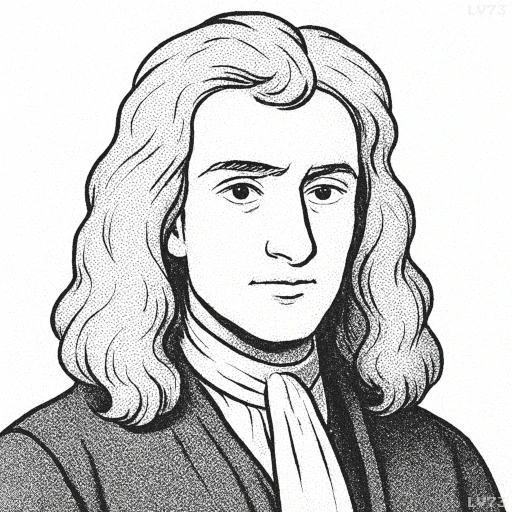“As a blind man has no idea of colors, so have we no idea of the manner by which the all-wise God perceives and understands all things.”

- January 4, 1643 – March 31, 1727
- Born in England (UK)
- Natural philosopher, mathematician, physicist, astronomer, theologian
table of contents
Quote
“As a blind man has no idea of colors, so have we no idea of the manner by which the all-wise God perceives and understands all things.”
Explanation
In this quote, Isaac Newton humbly acknowledges the limitations of human understanding when it comes to comprehending the nature of God’s perception and divine wisdom. He uses the analogy of a blind man who cannot perceive colors to illustrate that, just as we cannot fully understand or experience the divine nature and the way in which God perceives the universe, our understanding is inherently limited by our human senses and intellectual capacities. While we can observe and understand the world through reason and empirical observation, the divine way of knowing and perceiving all things is beyond our comprehension. Newton’s statement underscores the mystery of God’s nature and omniscience, suggesting that, no matter how much we might learn through science or philosophy, some aspects of reality remain unknowable to us.
Newton’s deeply religious worldview influenced both his scientific work and his understanding of the universe. Although he made monumental contributions to the study of the physical world, he was keenly aware that there were spiritual truths that lie beyond human reasoning and empirical methods. His exploration of natural laws and the order of the universe led him to believe in a divine Creator who established the laws that govern the cosmos, but he also accepted that the divine mind operates in a way that is not accessible to human understanding.
In modern times, Newton’s view on the limits of human understanding and the mystery of God’s perception remains relevant, particularly in philosophy and theology, where discussions about the nature of divinity often center around the limitations of human comprehension. Newton’s analogy can still be applied to the mystery of the divine in contemporary religious thought, where believers acknowledge that, while we can understand the world around us through science, some aspects of reality, especially those related to the nature of God or the afterlife, remain beyond our grasp. This humbling perspective continues to resonate in the intersection of science and faith, where the finite nature of human knowledge stands in contrast to the infinite and mysterious ways of the divine.
Would you like to share your impressions or related stories about this quote in the comments section?

